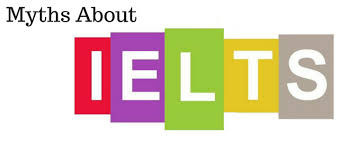Top 5 IELTS Myths That Are Holding You Back
- Lauren Simpson

- May 30, 2025
- 2 min read

Preparing for IELTS can be a rollercoaster of emotions — excitement, anxiety, and sometimes confusion. A lot of this confusion comes from common myths that circulate about the exam. At IELTS Uganda, we want to clear up these IELTS myths and misconceptions so you can focus on what really matters: your preparation and success.
Myth 1: IELTS Is Only for Academic Purposes
Have you ever heard someone say, “IELTS is only for students who want to study abroad”? This is only partly true. IELTS is a globally recognized test that serves multiple purposes. Yes, many universities require it for admissions, but it is also essential for immigration applications, professional certifications, and employment in English-speaking countries. For example, countries like the UK, Canada, Australia, and New Zealand accept IELTS results for visa applications. So, whether you want to study, work, or settle abroad, IELTS is your key.
Question for you: What’s your goal for taking IELTS? Is it study, work, or migration? Let us know in the comments!
Myth 2: You Must Be Perfect in English to Pass IELTS
Some people believe you need flawless English to pass IELTS, but that’s not true. IELTS evaluates your ability to communicate effectively, not perfection. It’s normal to make minor grammar or vocabulary mistakes as long as your meaning is clear. The examiners are trained to look for coherence, vocabulary range, and task fulfillment — not a perfect accent or flawless sentences.
Tip: Focus on communicating your ideas clearly and confidently. Practice speaking aloud with friends or record yourself to improve fluency.
Myth 3: Memorizing Answers Will Boost Your Score
Trying to memorize answers from sample tests is a trap many fall into. The IELTS speaking and writing tasks change every time, and examiners are skilled at spotting rehearsed answers. Instead, focus on understanding question types and practicing how to structure your answers naturally. This approach will help you adapt to any question and demonstrate your true language ability.
Interactive Exercise: Try answering different speaking prompts aloud. Focus on explaining your opinion rather than memorizing.
Myth 4: You Don’t Need Much Practice
Some think they can take the IELTS without preparation — this rarely works. The exam tests your skills in four areas: Listening, Reading, Writing, and Speaking. Each section requires different strategies and skills. Consistent practice with authentic materials is essential to familiarize yourself with the test format and timing.
Challenge: Take a timed practice test today and review your answers. Notice which section you find hardest and focus your study there.
Myth 5: A High IELTS Score Guarantees Visa Approval
While a good IELTS score is critical for visa or university applications, it’s just one part of your overall application. Immigration departments consider your education, work experience, and background checks too. Think of your IELTS score as a passport that opens the door but doesn’t guarantee entry alone.
Advice: Aim for the best possible score to strengthen your application, but prepare all your documents carefully.



Many students believe that IELTS is only about memorizing answers or that speaking perfectly like a native is mandatory. Others think you can “cram” for the exam in a few days, or that small mistakes automatically lower your band. These myths often discourage students from applying to top universities abroad. For instance, understanding the real facts about IELTS can open doors to programs with excellent opportunities, like Durham University placements, where strong communication skills are valued but practical learning and consistent effort matter more than perfection.